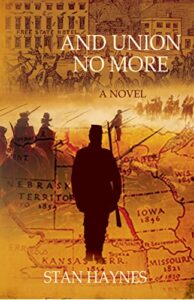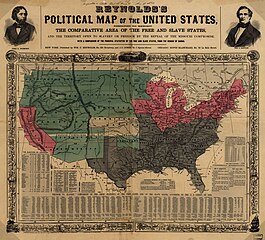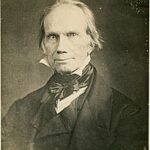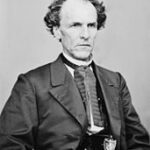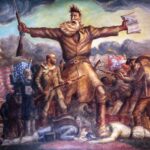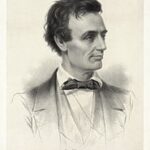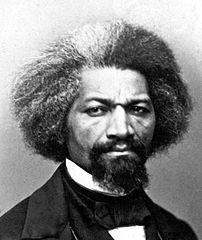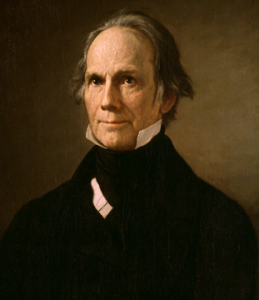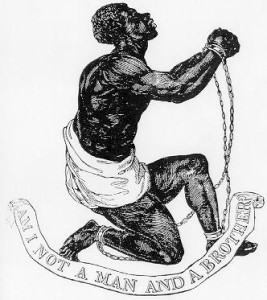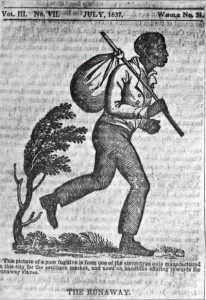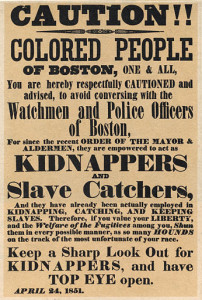A Novel of Historical Fact and Fiction About Bleeding Kansas
Bleeding Kansas and its struggle to become either a free or a slave state in the Union is the theme of And Union No More. Pro-slavery and anti-slavery supporters battle it out in a territorial civil war. The story is told by the experiences of fictional and factual historical characters and with fictional and factual history.
Title: And Union No More A Novel.
Author: Stan Haynes
Author Stan Haynes lives in Maryland and is a graduate of the College of William & Mary and the University of Virginia School of Law. His legal career as an attorney was at a Baltimore law firm. Haynes has always had a passion for American history. His website is: www.stanhaynes.com.
Background Laws Leading to Bleeding Kansas
The Missouri Compromise of 1820, the Compromise of 1850, the Fugitive Slave Act of 1850, and the Kansas-Nebraska Act of 1854 are the background laws that led up to Bleeding Kansas. Stan Haynes’ novel And Union No More tells the story of Bleeding Kansas using both historical facts and fiction, along with historical and fictional characters to weave an interesting and intriguing story. Would the Kansas Territory become a free or a slave state when it entered the Union?
Missouri Compromise of 1820
The Missouri Compromise of 1820 meant that Missouri would enter the Union as a slave state while Maine would enter as a free state. This would maintain the balance of power in representation between free and slave states. Also in the Missouri Compromise, a virtual dividing line was established across a latitude of parallel 36°30′ north where slavery was permanently banned, excepting Missouri. This seemed to quell free vs. slave state tensions, but others saw more conflict coming.
The now aged Thomas Jefferson considered the Missouri Compromise as, “like a fire bell in the night, awakened me and filled me with terror.” John Adams, older than Jefferson, thought it the “title page to a great tragic volume.” Both of these great statesmen believed the Missouri Compromise would lead to future conflict over the “Peculiar Institution” of slavery. The Missouri Compromise of 1820 helped set the stage for what later became Bleeding Kansas.Compromise of 1850
The Compromise of 1850 brought five separate bills that even more muddled the future of Kansas’ status as a free or slave state. The five separate bills of the Compromise of 1850 included:
1.) Allowing slavery in Washington, D.C., but outlawed the slave trade there.
2.) California came into the Union as a free state.
3.) Utah and New Mexico became territories that could decide by popular sovereignty if they would have slavery.
4.) New boundaries for the state of Texas were made following the Mexican-American War. Claims to parts of New Mexico were removed, but Texas was awarded $10 million in compensation.
5.) The Fugitive Slave Act of 1850 required citizens to assist in apprehending runaway slaves and denied enslaved people a right to trial by jury.
The Fugitive Slave Act of 1850
This act was especially controversial as it required that escaped slaves in free states be returned to slavery. The people of the free states were compelled to obey this law or suffer severe consequences of fines or jail. Because of the Fugitive Slave Act tensions increased between the North and the South, as did the chance of a Civil War.
Kansas-Nebraska Act of 1854
The passage of the Kansas-Nebraska Act of 1854 added a very large area of territory which was now open for settlement in the United States. This territory came from the Louisiana Purchase made fifty years before with France.
Illinois Senator Stephen Douglas created a bill that divided this area into two territories, Kansas and Nebraska. Douglas came up with the idea of Popular Sovereignty which meant that the people of these two new territories would decide whether or not to allow slavery when they became states. This overturned the Missouri Compromise of 1820 and set the stage for Bleeding Kansas. Pro-slavery and anti-slavery factions fought violently in order to gain the Popular Sovereignty majority advantage for their respective cause. Pro-slavery Border Ruffians from Missouri and anti-slavery Kansas Territory Jayhawkers violently fought each other in a territorial civil war. Bleeding Kansas foreshadowed the Civil War.
Author Stan Haynes
In Stan Haynes’ And Union No More the main character is anti-slavery Montgomery “Monty” Tolliver who sets out from his hometown of Dayton, Ohio for the Kansas Territory. Monty is an idealistic young man who is an abolitionist and he wants the Kansas Territory to become a free state. Monty goes to Kansas to start a new life and business and he will bring his family from Ohio to Kansas when all is ready. On his journey Monty soon encounters others, both anti-slavery and pro-slavery supporters. Monty Tolliver experiences and participates in the violence and bloodshed struggle of Bleeding Kansas in the years before the Civil War.Characters:
Note: On his And Union No More copyright page Stan Haynes makes this statement:
“This is a work of historical fiction. Where historical figures appear in the story, they are portrayed fictitiously, with details and events that are products of the author’s imagination, and should not be considered as real.”
Montgomery “Monty” Tolliver – The main character in Union No More is anti-slavery and abolitionist Monty Tolliver. Monty is a former Ohio congressman from Dayton. He goes to the Kansas Territory to start a new life and to help make it become a free state when it enters the Union. Tolliver meets two young men who are central to the story. He encounters various fictional assorted scoundrels, good people, and actual historical people. Tolliver is a captain in the free-state militia.
Robert Geddis – A restless anti-slavery young man from Rhode Island who becomes a close friend of Monty Tolliver and joins with him in the fight to make Kansas a free state. Geddis is a member of the free-state militia and a newspaper writer.
Billy Rutledge – Pro-slavery twenty-one year old Billy Rutledge is from Mississippi and he feels his life is not going anywhere. The Kansas-Nebraska Act spurs him to the Kansas Territory to fight against abolitionist and free-state Yankees. Helping to make Kansas a slave state gives his life meaning. Billy had a brother named Ben who died.
Henry Clay – Clay represented Kentucky in both the Senate and the House. He was anti-slavery and helped to found the Whig Party and the Republican Party. He is known as the “Great Compromiser.” Monty is influenced by Clay.
Ned Watkins – Watkins is pro-slavery and the leader of the secret Blue Lodge.
Raven – Raven is a code name. An older black woman and former slave who was set free after being bought by a benevolent young man. She now works the Underground Railroad as a conductor and the Fugitive Slave Act of 1850 brings threat and danger to her. Raven helps Monty and Monty had helped Raven.
James Lane – A militia leader in the Kansas Territory whose dedication to the Kansas Territory becoming a free state is wavering and questionable.
John Brown – The violent abolitionist from Hudson, Ohio.
Abraham Lincoln – Before he became the 16th president of the United States.
Some Story Events Of And Union No More:
- Montgomery “Monty” Tolliver is a former Ohio Congressman who worked with Henry Clay. He returns to his hometown of Dayton and rekindles his lost relationship with his life-long love.
- Monty goes to Bleeding Kansas on a journey to start a new life for himself and his family. Monty is idealistic and wants to help make Kansas a free state when it comes into the Union.
- Monty meets two young men who become his friends on his journey. Billy Rutledge is from Mississippi and is pro-slavery, Robert Geddis is from Rode Island and is anti-slavery.
- Billy Rutledge joins the secret pro-slavery Blue Lodge and takes an oath. The Blue Lodge is violent and burns cabins of anti-slavery settlers. Billy must participate in the violence, but is opposed to it.
- Monty and Robert witness the attack and violence on anti-slavery supporting Lawrence, Kansas. They are members of the free-state militia and Monty is a militia captain.
- Monty and Robert investigate the murders of pro-slavery supporters by anti-slavery supporters at Pottawatomie Creek.
- While he was an Ohio congressman in 1844, Monty is involved in a plot with another (whose identity is later revealed as a surprise) to assassinate pro-slavery President John Tyler.
- The Underground Railroad and story characters who are part of it, are prominent in the novel. There is Raven, and a mysterious “coyote.” Both have strong connections to Monty. There are surprises for the reader.
- A future president, Abraham Lincoln gives a defining speech at Peoria, Illinois in October 1854. Lincoln speaks of his view on Popular Sovereignty and the Kansas- Nebraska Act.
- Border Ruffians from Missouri interfere with voting by causing fraud in the Kansas Territory in order to make it a slave state. There is conflict between the Free-State Party and the Law-And-Order-Party as they compete against one another for their causes.
- There is a double murder of anti-slavery men and pro-slavery Billy Rutledge is arrested for the murders. Is he innocent and has been set up, or is he guilty? Will Billy hang for the murders? Do anti-slavery Monty and Robert unexpectedly come to help the pro-slavery Rutledge? A mysterious message comes to Monty and a secret meeting occurs with a significant historical individual who plays a compelling role in this drama.. The plot of And Union No More explodes with intrigue.
- The Wakusa War begins after a free-stater is killed over a land dispute by a pro-slavery neighbor.
- Writer and newspaperman Robert Geddis interviews radical abolitionist John Brown. As Haynes tells his story, Brown becomes more and more central.
- There is the Battle of Black Jack. Is it the actual first battle of the Civil War?
- Robert Geddis receives a “CONFIDENTIAL” letter from a key individual that reveals information of what happened behind the scenes. This letter wraps things up in And Union No More.
- Presidential candidate Abraham Lincoln gives a speech at Leavenworth, Kansas in December 1859. Monty Tolliver meets Lincoln.
Conclusion
I greatly recommend this novel to you. It is based on history and imagination and is well worth your attention and time. You will learn about events prior to the Civil War as Stan Haynes writes an engaging story using a combination of fact and fiction about Bleeding Kansas and its tribulation of becoming a free state. You will be informed and entertained by this novel. I give And Union No More a five star rating and a huge thumbs-up.Product details:
Title: And Union No More A Novel
ASIN : B0BY39X93D
Publication date : April 11, 2023
Language : English
File size : 3771 KB
Text-to-Speech : Enabled
Screen Reader : Supported
Enhanced typesetting : Enabled
X-Ray : Not Enabled
Word Wise : Enabled
Sticky notes : On Kindle Scribe
Print length : 255 pages
Best Sellers Rank: #117,504 in Kindle Store (See Top 100 in Kindle Store)
#121 in Political Fiction (Kindle Store)
#295 in Political Fiction (Books)
#4,513 in Historical Fiction (Kindle Store)
Customer Reviews:
4.2 4.2 out of 5 stars 37 ratings
